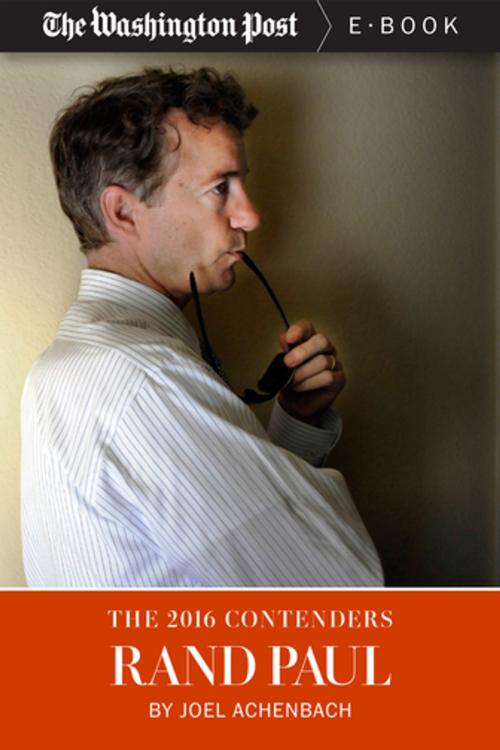The 2016 Contenders: Rand Paul
Nonfiction, Social & Cultural Studies, Political Science, Government, Elections, Politics, Practical Politics| Author: | Joel Achenbach, The Washington Post | ISBN: | 9781626819979 |
| Publisher: | Diversion Books | Publication: | July 28, 2015 |
| Imprint: | Diversion Books | Language: | English |
| Author: | Joel Achenbach, The Washington Post |
| ISBN: | 9781626819979 |
| Publisher: | Diversion Books |
| Publication: | July 28, 2015 |
| Imprint: | Diversion Books |
| Language: | English |
Presidential candidates are a breed apart, often propelled by traits that have shaped their careers and have deep roots in personal histories.
Often their greatest strength can turn at supernova speed into their greatest weakness. The exact qualities that set them apart from the field trip them up eventually over the long haul of a presidential campaign.
Rand Paul’s ability to sell himself as the most libertarian of the presidential candidates—defending civil liberties at home and opposing military adventurism and nation-building abroad—is what can set him apart. But those unconventional ideas could also box him in. Libertarians don’t win national elections, unless you count Thomas Jefferson in 1800 and 1804.
In this series of eBooks, The Washington Post is exploring in-depth all these key characteristics of the leading presidential contenders, the very characteristics that could help make one of them the country’s next commander in chief—or forever sink their presidential ambitions.
Often their greatest strength can turn at supernova speed into their greatest weakness. The exact qualities that set them apart from the field trip them up eventually over the long haul of a presidential campaign.
Rand Paul’s ability to sell himself as the most libertarian of the presidential candidates—defending civil liberties at home and opposing military adventurism and nation-building abroad—is what can set him apart. But those unconventional ideas could also box him in. Libertarians don’t win national elections, unless you count Thomas Jefferson in 1800 and 1804.
In this series of eBooks, The Washington Post is exploring in-depth all these key characteristics of the leading presidential contenders, the very characteristics that could help make one of them the country’s next commander in chief—or forever sink their presidential ambitions.
Presidential candidates are a breed apart, often propelled by traits that have shaped their careers and have deep roots in personal histories.
Often their greatest strength can turn at supernova speed into their greatest weakness. The exact qualities that set them apart from the field trip them up eventually over the long haul of a presidential campaign.
Rand Paul’s ability to sell himself as the most libertarian of the presidential candidates—defending civil liberties at home and opposing military adventurism and nation-building abroad—is what can set him apart. But those unconventional ideas could also box him in. Libertarians don’t win national elections, unless you count Thomas Jefferson in 1800 and 1804.
In this series of eBooks, The Washington Post is exploring in-depth all these key characteristics of the leading presidential contenders, the very characteristics that could help make one of them the country’s next commander in chief—or forever sink their presidential ambitions.
Often their greatest strength can turn at supernova speed into their greatest weakness. The exact qualities that set them apart from the field trip them up eventually over the long haul of a presidential campaign.
Rand Paul’s ability to sell himself as the most libertarian of the presidential candidates—defending civil liberties at home and opposing military adventurism and nation-building abroad—is what can set him apart. But those unconventional ideas could also box him in. Libertarians don’t win national elections, unless you count Thomas Jefferson in 1800 and 1804.
In this series of eBooks, The Washington Post is exploring in-depth all these key characteristics of the leading presidential contenders, the very characteristics that could help make one of them the country’s next commander in chief—or forever sink their presidential ambitions.















